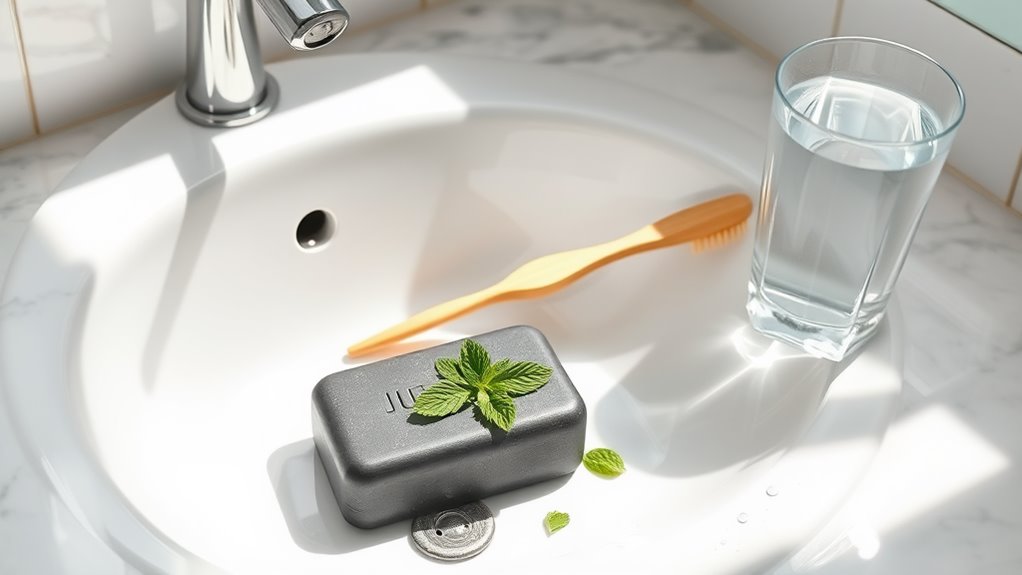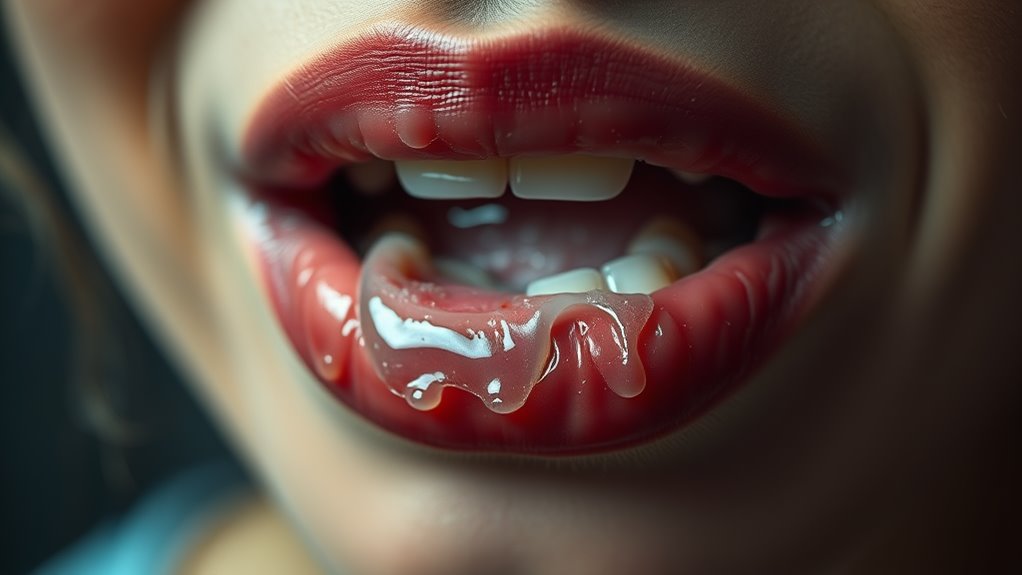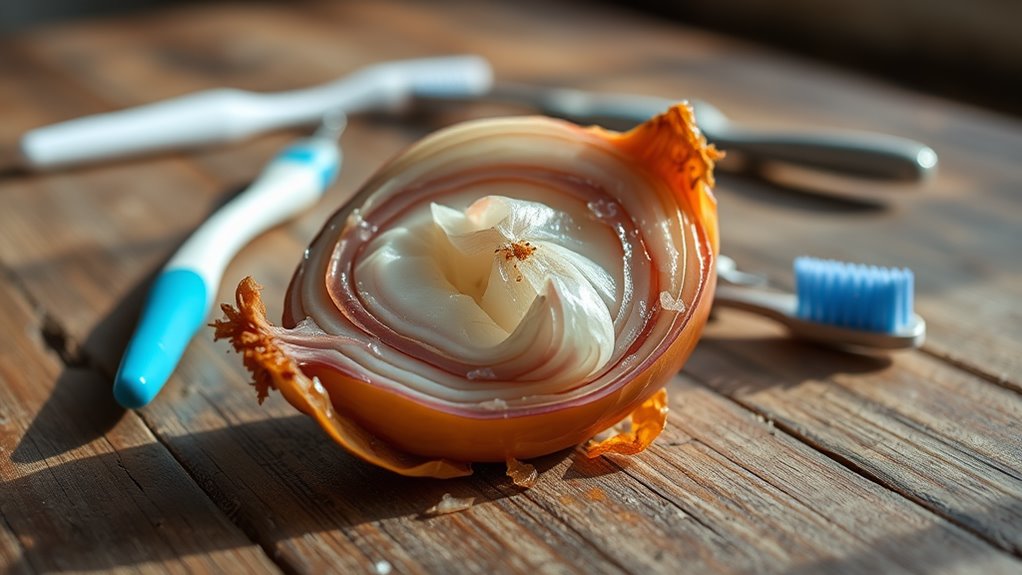Morning Breath No More! the Secret to Waking up With Fresh Breath!
You can minimize morning breath by following a proper evening dental routine that includes thorough brushing, flossing, and using an alcohol-free mouthwash. Stay hydrated throughout the night by keeping water nearby, and avoid triggers like alcohol, tobacco, and strong-flavored foods before bed. Natural remedies such as green tea or parsley can help combat bacteria growth while you sleep. Discover more proven strategies to wake up with consistently fresh breath.
Understanding Why Morning Breath Happens
While you sleep, your mouth produces less saliva, creating the perfect environment for bacteria to thrive.
These bacteria break down proteins in your mouth, releasing volatile sulfur compounds that cause that distinctive morning breath odor. The reduced saliva flow means there’s less natural cleansing of food particles and dead cells that accumulate overnight.
Several factors can make your morning breath worse. If you breathe through your mouth while sleeping, it dries out your oral cavity even more.
Certain medications can decrease saliva production, while conditions like sleep apnea or sinus issues may force mouth breathing. Your evening habits matter too – smoking, drinking alcohol, or eating strong-flavored foods before bed can intensify morning breath by leaving lingering compounds in your mouth.
Your Evening Dental Care Game Plan
Now that you understand what causes morning breath, you can take steps to prevent it with a solid bedtime routine.
Brush your teeth thoroughly for two minutes, focusing on all surfaces and your tongue. Don’t forget to floss between every tooth to remove trapped food particles that bacteria love to feast on overnight.
Rinse with an alcohol-free antimicrobial mouthwash to kill harmful bacteria without drying out your mouth.
Keep water by your bed and take small sips if you wake up during the night. If you wear a retainer or mouth guard, clean it properly before putting it in.
Consider using a humidifier in your bedroom to prevent dry mouth while you sleep, especially during winter months or if you breathe through your mouth.
Lifestyle Changes That Combat Bad Morning Breath
Beyond your nightly dental routine, several lifestyle adjustments can significantly reduce morning breath. Cut back on alcohol and tobacco use, as both dry out your mouth and create an environment where bacteria thrive.
Stay hydrated throughout the day by drinking plenty of water, and consider using a humidifier in your bedroom to prevent mouth dryness while you sleep.
Watch what you eat in the evening hours. Avoid foods high in sugar, garlic, or onions close to bedtime. Instead, choose breath-friendly snacks like yogurt, which contains beneficial bacteria, or crunchy vegetables that naturally clean your teeth.
If you’re prone to mouth breathing while sleeping, try clearing your nasal passages with a saline rinse before bed to encourage nasal breathing.
Natural Remedies and Solutions for Fresh Morning Breath
Since ancient times, people have turned to natural remedies to combat morning breath, and many of these solutions remain effective today. You’ll find these natural options are both effective and readily available in your kitchen or local store.
| Remedy | How to Use | Benefits |
|---|---|---|
| Green Tea | Drink before bed | Antibacterial properties |
| Parsley | Chew fresh leaves | Neutralizes odors |
| Apple Cider Vinegar | Gargle with water mix | Kills bacteria |
| Cinnamon Stick | Chew briefly | Fresh breath all day |
| Clove Oil | Add drops to water | Natural antiseptic |
Try incorporating these natural solutions into your bedtime routine. You can also create your own mouthwash by mixing tea tree oil with water or use coconut oil pulling for 10-15 minutes each morning.
When to Seek Professional Help for Persistent Morning Breath
While natural remedies work well for typical morning breath, persistent bad breath that doesn’t improve with home solutions could signal underlying health issues.
You should consult a dentist or healthcare provider if your bad breath continues despite maintaining good oral hygiene, using natural remedies, and making lifestyle changes.
Watch for warning signs like persistent dry mouth, white coating on your tongue, bleeding gums, or tooth pain.
These symptoms might indicate conditions such as gum disease, tooth decay, tonsil stones, or systemic health problems. Your doctor may need to examine potential issues with your sinuses, digestive system, or other organs.
Don’t wait too long to seek help – chronic bad breath can impact your confidence and social interactions, and early intervention often leads to more effective treatment options.




